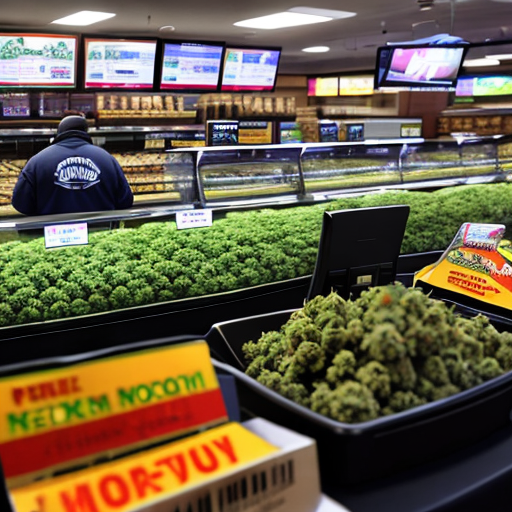
In the smoky haze of Connecticut’s budding cannabis industry, a peculiar phenomenon is taking shape. Like a dystopian McDonald’s empire, the state’s dispensaries appear to be nothing more than cookie-cutter clones, serving up the same predictable fare of cannabis flower, vapor products, and edibles. Behind the façade of choice, a chilling truth emerges: the illusion of diversity hides the grim reality that all outlets are serving up the same monotonous burgers, fries, and shakes.

The Department of Consumer Protection recently unveiled the disconcerting sales figures for the month of June, revealing that Connecticut residents poured nearly $24 million into cannabis products. While this may seem like a sign of a thriving market, a closer look reveals a deeply unsettling pattern. The lines between medical marijuana and adult-use retail sales have blurred, and what was once touted as a distinction has become an empty promise.

For the second consecutive month, adult-use retail sales have surpassed medical marijuana transactions, with $12.5 million lining the pockets of dispensary owners. The remaining $11.3 million represents a meager consolation prize for the once-proud medical marijuana market. In this race for profits, compassion and patient care have been cast aside, overshadowed by the allure of a lucrative recreational market.

The parallels between Connecticut’s cannabis market and the mass-produced mediocrity of a fast-food chain are eerie. Just as every McDonald’s outlet serves the same standardized burgers, fries, and shakes, the dispensaries in Connecticut offer a limited range of options, masquerading as variety. The 32 flavors of cannabis are but an illusion, arising from a mere four sources. Behind closed doors, an oligopoly has emerged, wielding its power over the palates and pockets of the unsuspecting consumer.

Gone are the days of passionate cannabis connoisseurs, carefully tending to unique strains and curating an experience for enthusiasts. Instead, we find ourselves in a world where profit margins reign supreme, and the soul of cannabis culture is sacrificed on the altar of commercialization. In this grim reality, the individuality of strains is reduced to a mere marketing ploy, serving only to differentiate one identical product from another.

As we play Proctologist and look deeper into the bowels of this cannabis dystopia, we must question the consequences of such homogeneity. Innovation stifles, creativity withers, and the once-vibrant cannabis culture fades into the background. We are left with a shadow of what once was, a landscape dominated by faceless corporations and profit-driven machines.

In Connecticut’s cannabis market, with its facade of choice and its hollow promises of diversity, it resembles a bleak McDonald’s cutout. Behind the flashy signs and clever marketing lies a world devoid of innovation, creativity, and the spirit of cannabis culture. The illusion of variety masks a haunting truth: it’s all the same burgers. The only difference lies in the location, reminding us that the soul of an industry can be devoured by the hunger for profits. Welcome to MonoCulture.

Let us heed the warning, lest the darkness of the Connecticut cannabis market spreads its tendrils across the land, suffocating the true essence of this remarkable plant and leaving us with nothing more than a uniform, tasteless existence.



